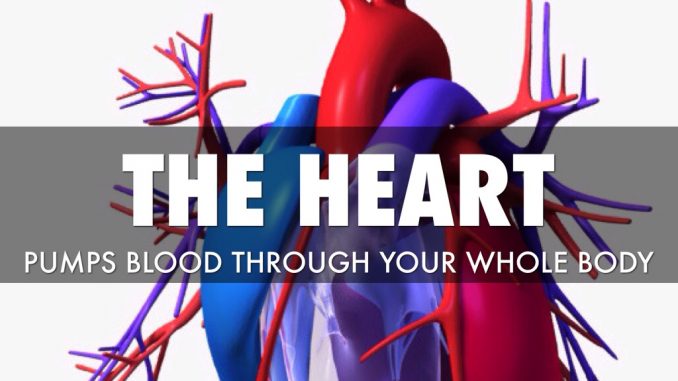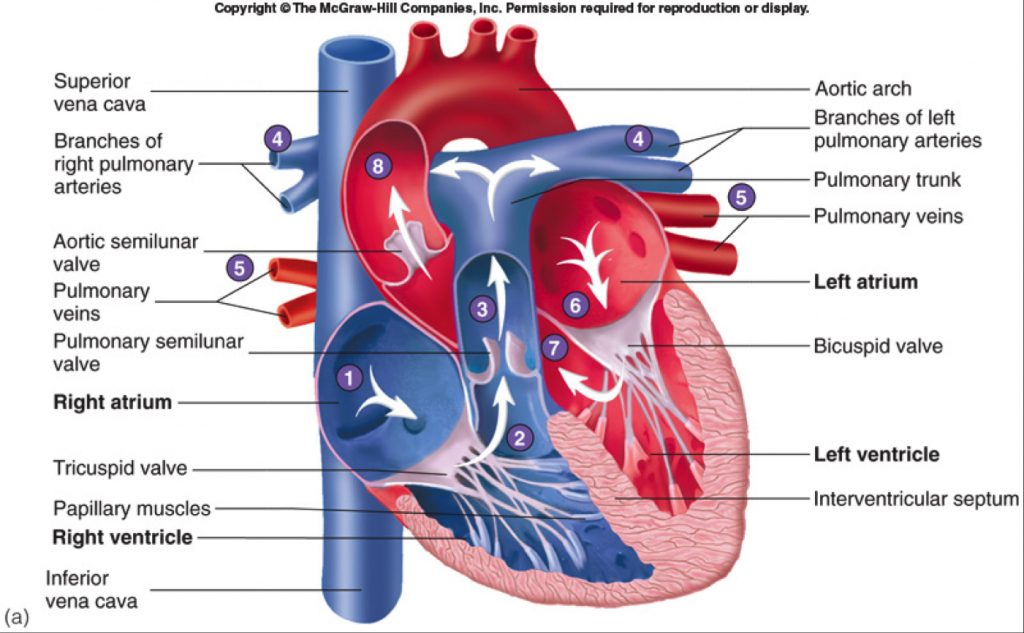Gross Anatomy of the Human Heart Review Sheet Exercise 20

Man Heart-Gross structure and Anatomy
Heart
- Center is a myogenic muscular organ that pumps blood throughout the blood vessel by repeated rhythemic contraction.
Figure: Beefcake of Man Heart
- Shape and size: it is roughly cone shaped hollow organ which is near 10 cm long. It is approximately the size of owner's closed fist and weight about 250-300 gm in female and 300-350gm in male person.
- Location: heart lies in the thoracic crenel in the space between the lungs (mediastinum) anterior to the vertebral column and posterior to sternum. Information technology lies obliquely a petty more to left than right.
Structure:
eye is composed of three layer of tissue.
- Pericardium
- Myocardium
- Endocardium
Pericardium
- It is double walled layer which encloses centre; the space between the two layer is filled with pericardial fluids.
- Outer layer is chosen fibrous pericardium
- Inner layer is called serous pericardium. It secrete serous fluid.
- During heart beat, pericardial fluid forestall heart from stupor and mechanical injury
Myocardium
- Myocardium is the middle layer which is equanimous of specialized cardiac muscle (just found in rut)
- Myocardium is striated musculus merely not under voluntary movement.
- When impulse is generated, it spread from jail cell to cell via branches and intercalated disc over the whole canvass of cardiac muscle causing wrinkle of muscle fiber.
- The sheet system of cardiac muscle enables the atrium and ventricle to contract in coordinated and efficient manner.
- Myocardium is the thickest at the apex than the base. Similarly thicker at left ventricle than right ventricle. This reflects the amount of workload.
- Cardiac skeleton: The myocardium is supported past the network of fine fiber, chosen as gristly skeleton of heart
Endocardium
- Endocardium is the inner layer of heart which lines the chamber and valves of the heart
- It is thin, smooth membrane that permits smooth flow of blood
- Information technology consists of flattened epithelial cells and is continuous with endothelium layer of blood vessels.
Chambers of center:
- Heart consists of 4 chambers
- At first middle is divided into correct and left side by the septum
- Each side is farther divided into 2 bedroom each by artioventricular valve
- The upper ii chambers are chosen atrium and lower ii are chosen ventricles.
Atrium
- Atrium are thin walled sleeping accommodation separated by interauricular septum
- Right atrium receive impure blood from trunk through the opening via superior and junior venacava
- The opening is guided by Eustachian valve and coronary valve.
- In right atrium, there is a oval depression adjoining the inter-auricular septum called fossa ovalis which communicate two auricle during fetal life
- Left atrium receive pure (oxygenated) blood from lungs through the iv opening of pulmonary vein
- Each atrium has flap like appendages called auricle of unknown part
Ventricle
- Ventricles are thick walled sleeping accommodation separated by thick inter-ventricular septum
- Left ventricle is thicker and longer than right ventricle
- The wall of ventricle has muscular ridges or projection called columnae cornea (Trabeculae cornae)
- Columnae cornea divides the cavity of ventricles into smaller spaces chosen fissures
- Right ventricle receive impure blood from right atrium and pumps via pulmonary arteries to lungs
- Left ventricle receive oxygenated blood from left atrium and pumps the blood to aorta.
Valves
one. Atrioventricular valve
- These are two in number
- The correct artioventricular valve has three cusps or flaps, called tricuspid valve
- Left artioventricular valve has only two cusps, called as bicuspid valve
- These valves open merely in ventricles and hence preclude dorsum catamenia of claret
- These valves are attached to the wall of ventricles by ways of tendon called chordae tendinae
- The function of chordae tendinae is to concur the valve and prevent enter of valve to auricle during forceful ventricular wrinkle.
2. Semilunar valve
- Correct ventricle pumps claret through pulmonary aorta to lungs and left ventricle pumps blood through aorta. These opening is guided past three cusps semi lunar valve
- Left semilunar valve is chosen aortic valve and right semilunar valve is chosen pulmonary valve.
Human Heart-Gross structure and Beefcake
Source: https://www.onlinebiologynotes.com/human-heart-gross-structure-and-anatomy/

0 Response to "Gross Anatomy of the Human Heart Review Sheet Exercise 20"
Post a Comment